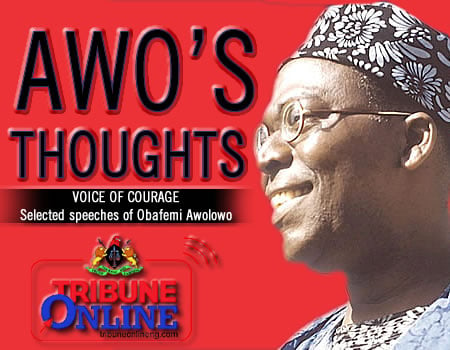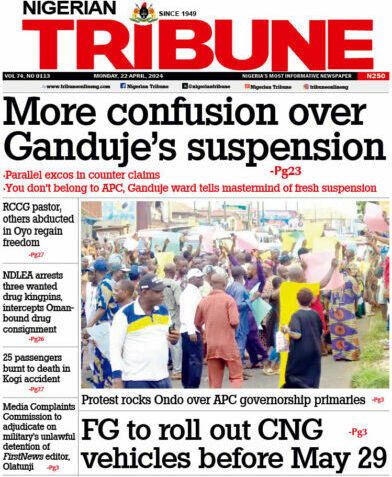CONTINUED FROM LAST WEEK
In this sense, ECONOMIC FREEDOM EXISTS WHEN A POLITICALLY SOVEREIGN COUNTRY, INDEPENDENTLY OF OUTSIDE CONTROL OR DIRECTION, ORGANIZES THE EXPLOITATION AND DEPLOYMENT OF ITS TOTAL RESOURCES FOR THE BENEFIT OF ITS ENTIRE PEOPLE, UNDER A SYSTEM IN WHICH THE FORCES OF SUPPLY AND DEMAND AND OF MARGINAL UTILITY ARE CONTROLLED AND CANALIZED FOR THE COMMON GOOD.
It is important to bear this distinction in mind for a number of reasons. Firstly, the postulates of capitalism, as we have previously noted, are false and a snare; and the forces of supply and demand and of marginal utility, when they are allowed to operate without conscious control, are injurious to all human freedom. Secondly, it is possible for a country to be economically free in the capitalist sense while the majority of its citizens are enslaved, as was the case in European countries under feudalism and laissez-faire capitalism.
The converse of this is also true; namely, it is possible for the citizens to enjoy economic freedom, in the capitalist acceptation of the term, while the country as a whoe is economically enslaved, as is the case with underdeveloped countries including Nigeria.
Thirdly, economic freedom, in the politico-economic sense, is also the opposite of economic subjection, in the same sense. While, in this sense, economic servitude for a country is a concomitant of political subjection, economic freedom does not necessarily go hand-in-hand with political independence.
From the foregoing definitions and analyses, two inferences appear to us to be incontestable. First, a country is underdeveloped simply because it lacks the following indispensable prerequisites of development, namely: education, and good health; technical, managerial, and administrative competence; and capital.
Second, an underdeveloped country, by the very fact of its underdevelopment, is permanently exposed to the foreign exploitation and deployment of its resources, and hence to economic dependence, subjection, and what is now called neo- colonialism, even though it is politically independent and sovereign. We now turn to the facts which, in our view, place Nigeria so firmly, properly, and glaringly in the company of underdeveloped and economicaIIy dependent countries, as defined and described, as to permit of no reasonable quibble or rationalization on the point. The per capita G.N.P: of Nigeria is 22. This is about 1/43rd of. the per capita G.N.P. of the United States of America, and about 11 23rd of that of Britain. It is one of the worst two in the world, placing Nigeria in the same poverty bracket as India.
As we have noted earlier on, only 16% of Nigeria’s soil is under cultivation. Of the remaining 84%, 62% is uncultivated and not utilized; forests, mountains, and rocks cover about 21 %; while buildings occupy about 1 %.
By way of comparison and contrast, 81 % of Britain’s land area is cultivated and utilized. ‘The rest is mountain and forest, or put to urban and kindred uses.’ This comparison may sound unfair, having regard to the fact that 54 million people live in Britain with an area of 88,760 square miles. But the frightful inadequacy of Nigeria’s land utilization can be seen more vividly by comparison with Britain on other grounds. Of the 27 million Britons who are engaged in civil employment, only 800,000 of them-i.e., 3% – do farming, and utilize, among them, 46 million acres of land; an aver~ge of 571/2 acres p~r head of the active British farming population. In Nigeria, however, outofour25 million active labour force, 20 millions – i.e., 80(Yo – are actually engaged in tilling 37 million acres of land, an average of about 1.8 acres per head of our active farming population.
Thus, by the forcible and irresistible propulsion of statistics, we arrive at the very unpalatable but valid equation whereby one British farmer is equal to 32 Nigerian peasants. In the industrial sector, the output of one British worker has been said to be equal to that of between 5-10 Nigerian workers, all depending, in the case of Nigerians, on the particular industry and the kind of labour-saving devices in use. I four farming, storage, and marketing techniques were modern, and if the education, health, and general living conditions of our farmers were much better than they are, much more acreage of land would be brought under cultivation; far fewer people would be needed on the farm to produce more food and export crops than at present; and the productivity and standard ofliving of the farming population would rise considerably.
But the truth, as we know it, is that our farming and storage techniques remain more or less the same as those employed by Adam and Eve, soon after their expulsion from the Garden of Eden.
What improvement there is in our marketing technique has been brought about, unconsciously by the correspondiag improvement in transportation. In the case of export crops, the techniques of storage and marketing in respect of plantation and non-plantation products are as good as can be. As for production technique, it is excellent in the plantations; and while there is big room for
improvement in production technique among non-plantation producers of export crops, the technique employed ill producing domestic crops is poorer by far.
The masses of Nigerian people are pathetically malnourished and disease-ridden, and wretchedly clad and housed. But the Nigerian farmers or peasants are more so. The annual output per farmer or agricultural worker is 40.2S. as against 177 per non- agricultural worker. Though there are no starisucal data on the point. it is a notorious fact that fanners who are mainly engaged in the production of export products like cocoa. groundnuts. ctc., are much more well off than those whose main occupation is the production of domestic rood crops.
CONTINUES NEXT WEEK
IN CASE YOU MISSED THESE FROM NIGERIAN TRIBUNE
- Revealed! Details Of South-West APC Leaders Meeting With Presidential Aspirants
- Supreme Court Has Cleared Civil Servants To Participate In Politics, Falana Tells FG
- Battle For New Alaafin Begins As Ruling Houses Insist On Producing Next Oba
- Court Admits More Evidence Against Alleged Fake Army General, Bolarinwa
- I’m Every Man’s Choice Now, My DM Is Crazy —Eniola Badmus
- It Is Now Bye To Decency: Crazy Fashion Trends At Owambe Parties



